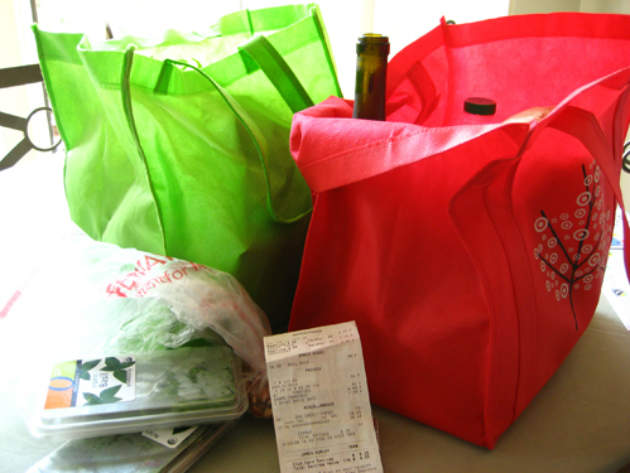
Single-use plastic carrier bags are an environmental scourge. They’re not easily recycled, while also being fragile and tough to reuse more than a few times. They take a long time to decompose, and in the meantime clog drains, harm wildlife, get stuck in trees and fill up landfills.
‘Bags for life’, or reusable shopping bags used primarily for grocery products, have been touted as a solution to the plastic bag problem, but just reusing the same bag over and again brings yet more problems, this time posing health risks to the consumer.
Most who frequently make use of reusable bags store them in the boot of a car ready for a shopping trip, or in a dark cupboard under the stairs. These conditions, coupled with the fact that these bags are primarily used for grocery shopping, means that the environment is perfect for the spread of harmful and even potentially deadly bacteria, including E.coli and campylobacter.
The UK Food Standards Agency (FSA) has issued guidelines on the use of reusable bags, saying that even if potentially harmful goods such as meat products have not leaked and contaminated the bags, the packaging they’re contained in can still be covered in harmful bacteria, which can very easily spread to other products and then multiply when left unattended.
Dealing with deadly bacteria
A proposed solution is the regular washing of plastic bags to destroy the bacteria, but a 2010 University of Arizona and Loma Lina University study found that only 3% of Americans regularly wash their reusable bags, and figures are just as low elsewhere in the world.
FSA guidelines state that fabric bags should be machine-washed regularly, but those cleaning their bags might still be at risk. In 2013 Aberdeen University emeritus professor Hugh Pennington said in a radio interview that “washing the bag is not a very good idea – you can’t be certain you’ve got rid of all the bugs. For any bag that’s had raw meat in it, I would recommend that bag is disposed of.”
The solution appears to be either packing all product varieties in their own bags, or using disposable plastic bags to separate items, defeating the whole purpose of using a bag for life. However, Symphony Environmental Technologies is a company that says it has found another option. The organisation manufactures ‘d2p’ or ‘designed to protect’ technology – an antibacterial, antifungal and antimicrobial masterbatch that can be added to the polymer used to create reusable plastic bags.
According to the company, d2p protects against microorganisms such as MRSA, E.Coli and Salmonella. Symphony Environmental Technologies spokesperson Paula Hickford explains the process: “The active antimicrobial ingredient works on both bacteria (prokaryotic cells) and fungi, yeast and algae (Eukaryotic cells) by disrupting the plasma membranes and interfering with cell function to effectively stop the microorganisms multiplying, thus keeping the surface of the polymer hostile to microbial colonisation and reducing the risk of microbial growth inside the bag.”
Fighting bacteria at the molecular level might be an extreme measure, but unless consumers heed public health authorities’ advice to ensure meat and other potentially dangerous goods are separated from products susceptible to contamination, foodborne illnesses could be a persistent problem requiring a dramatic solution.



